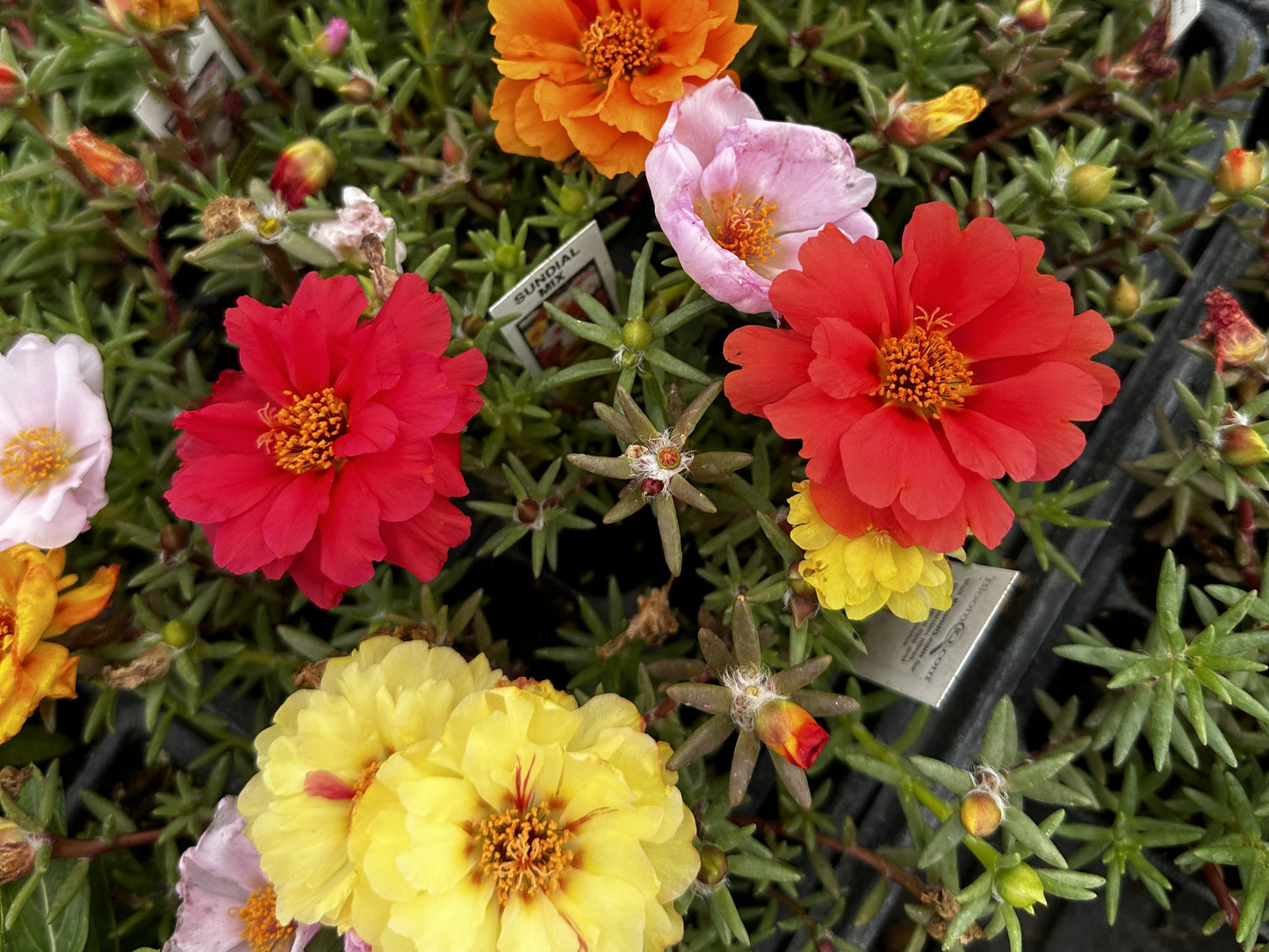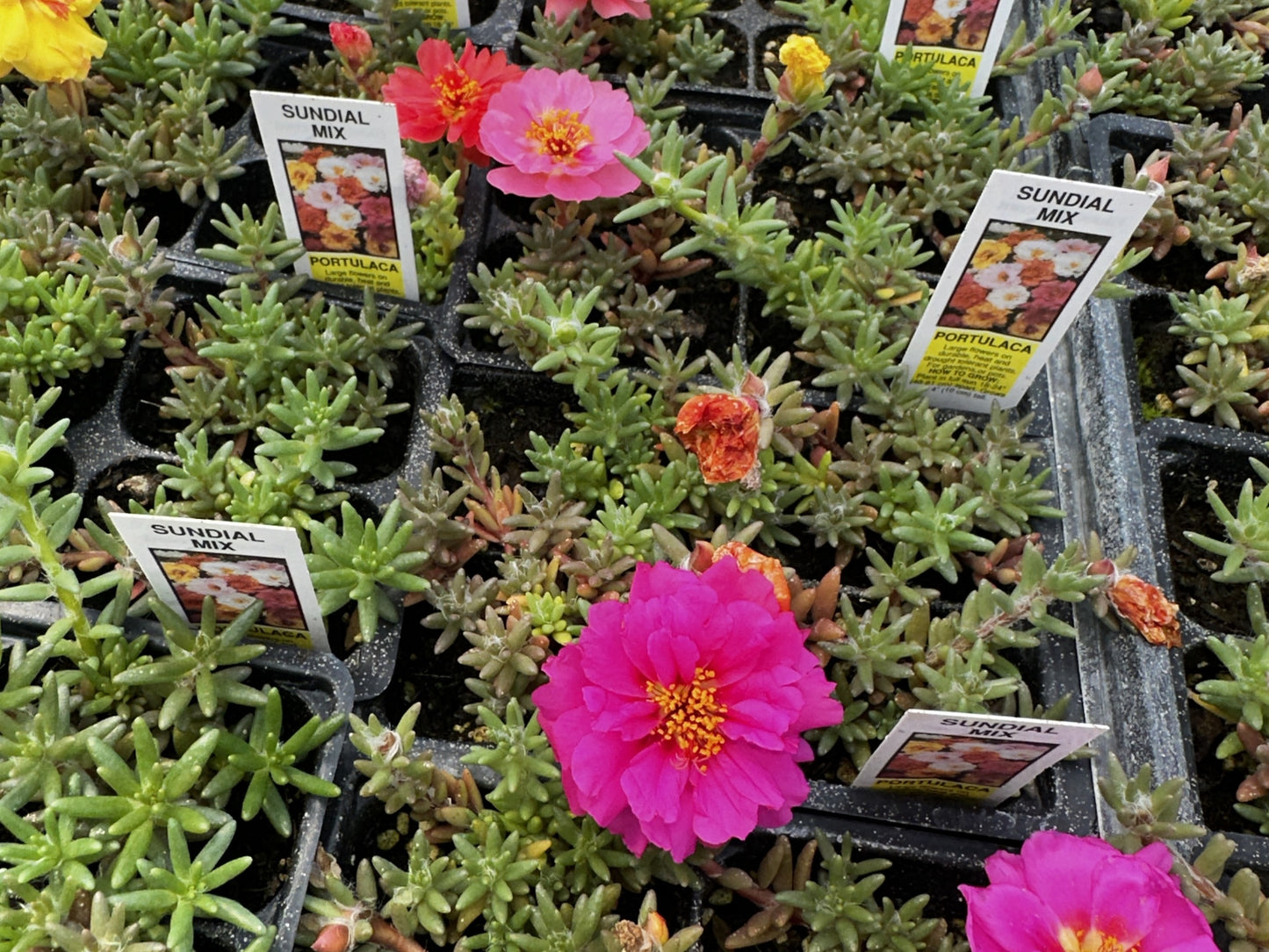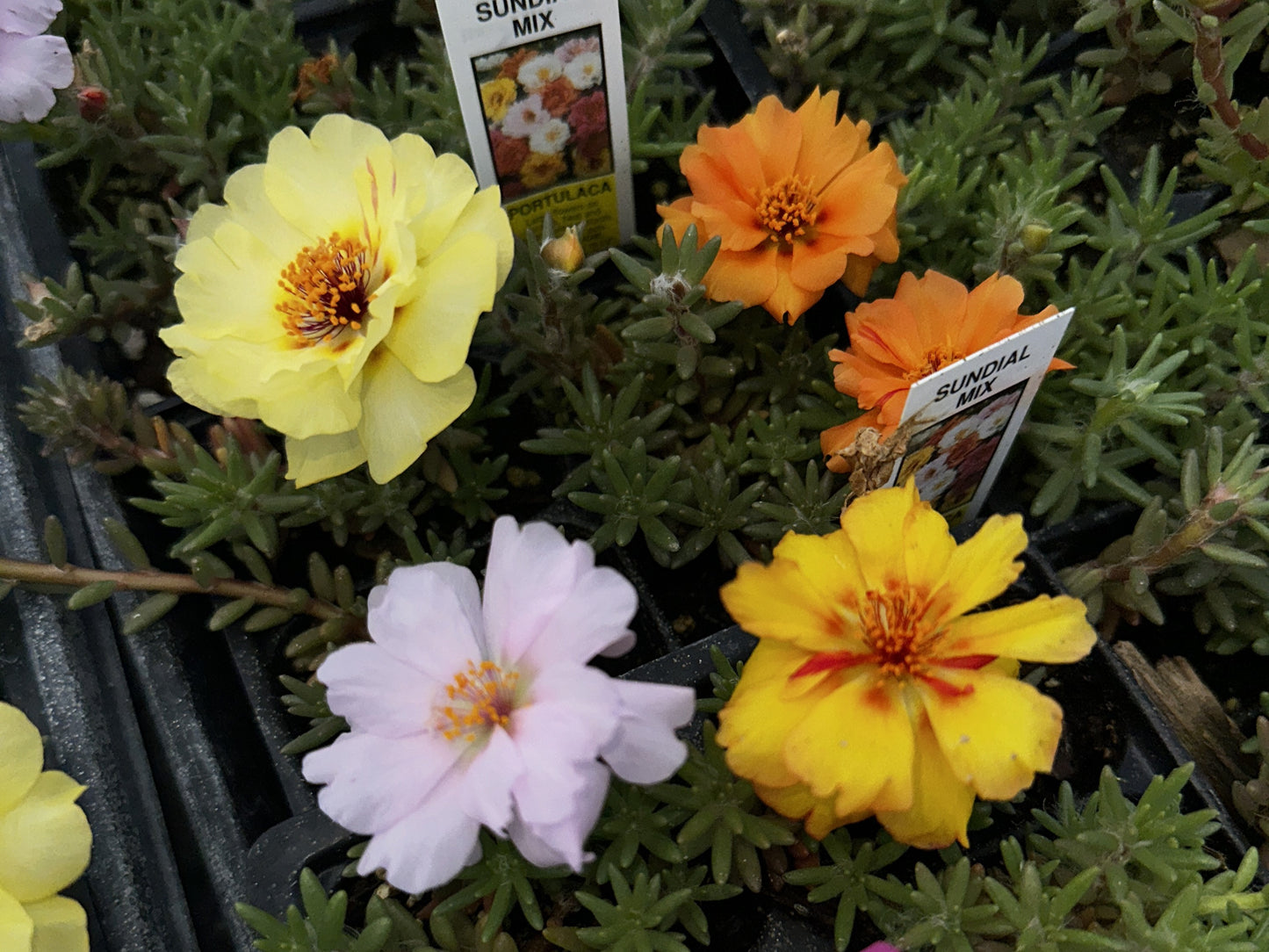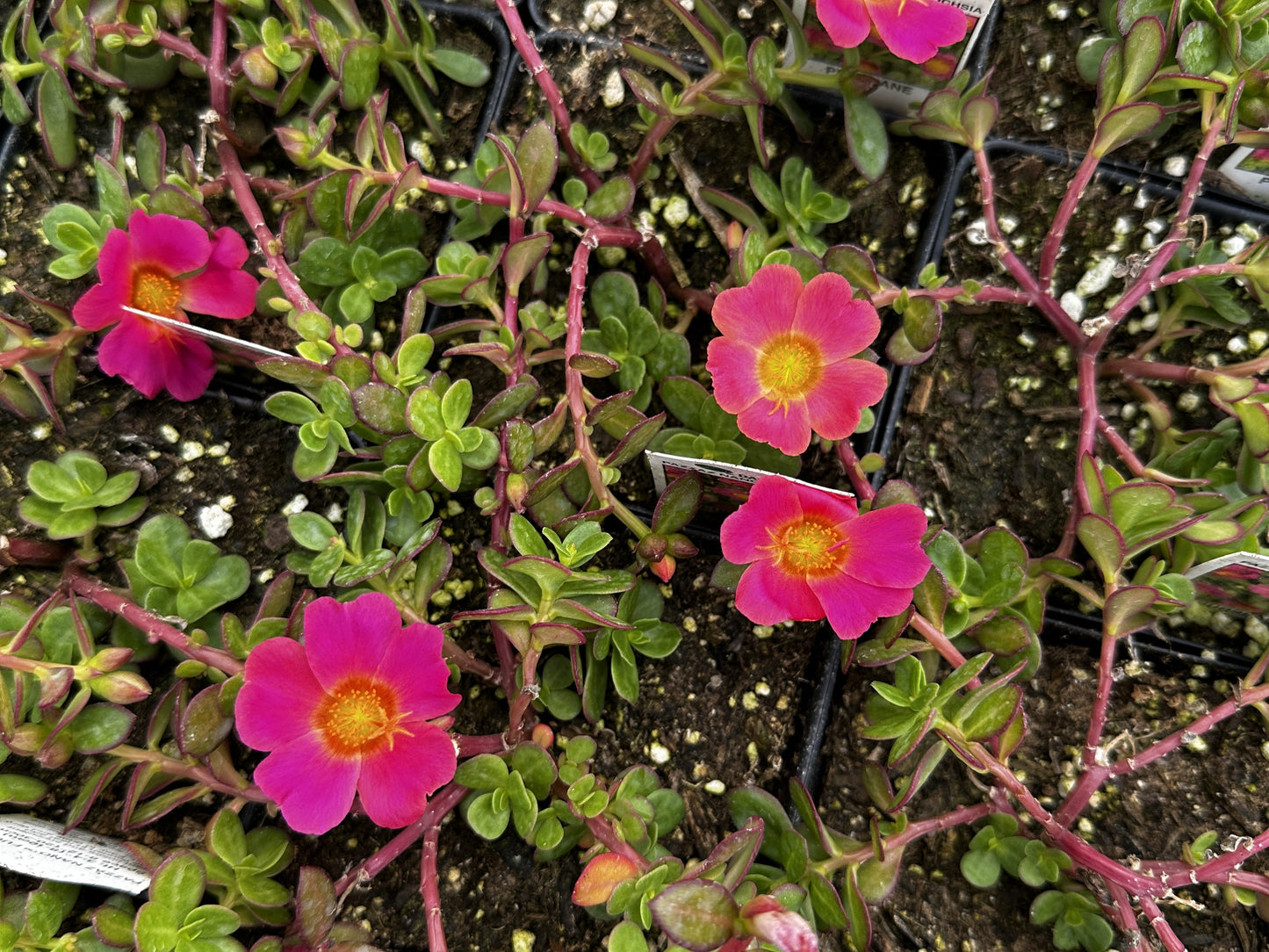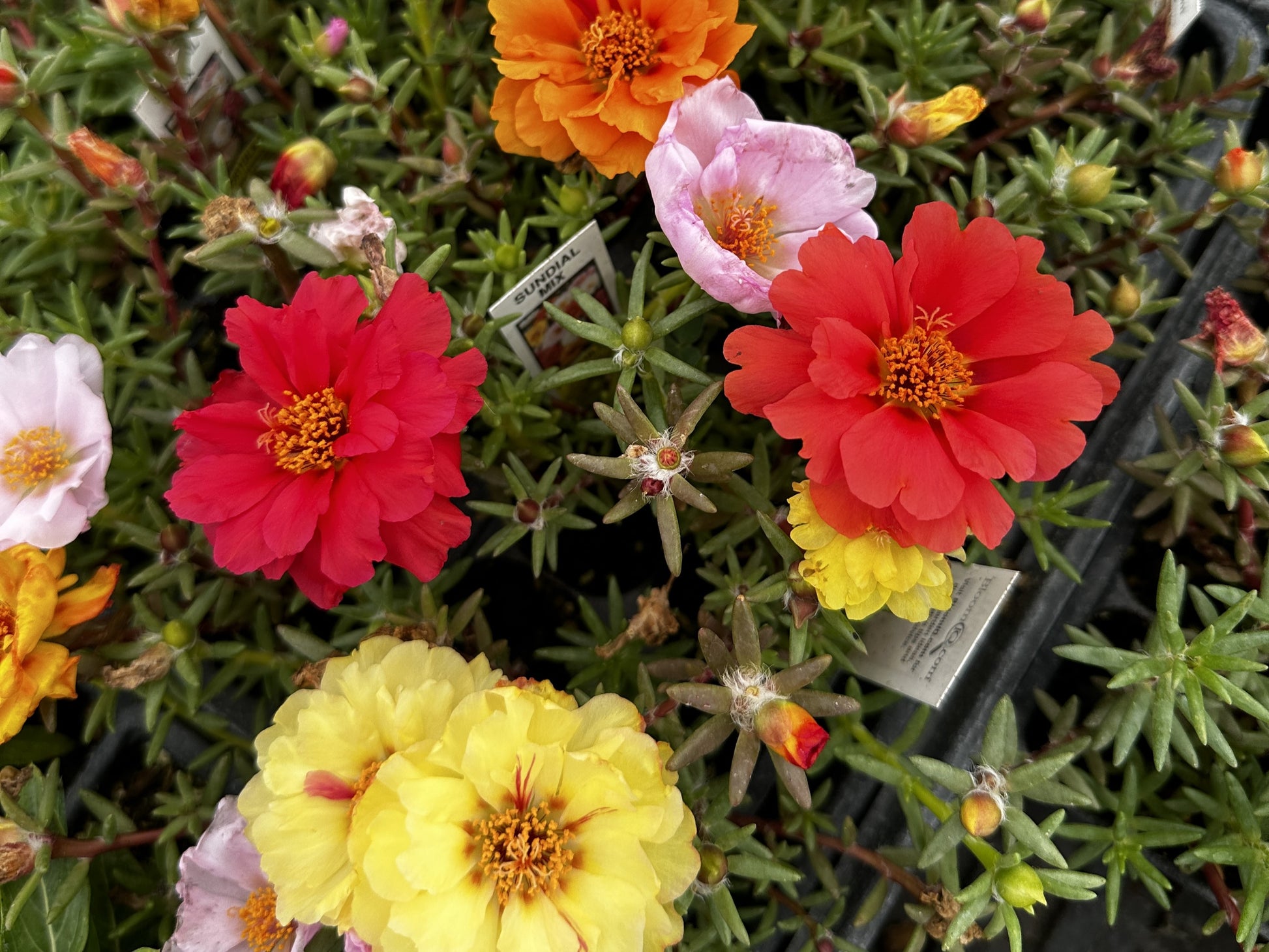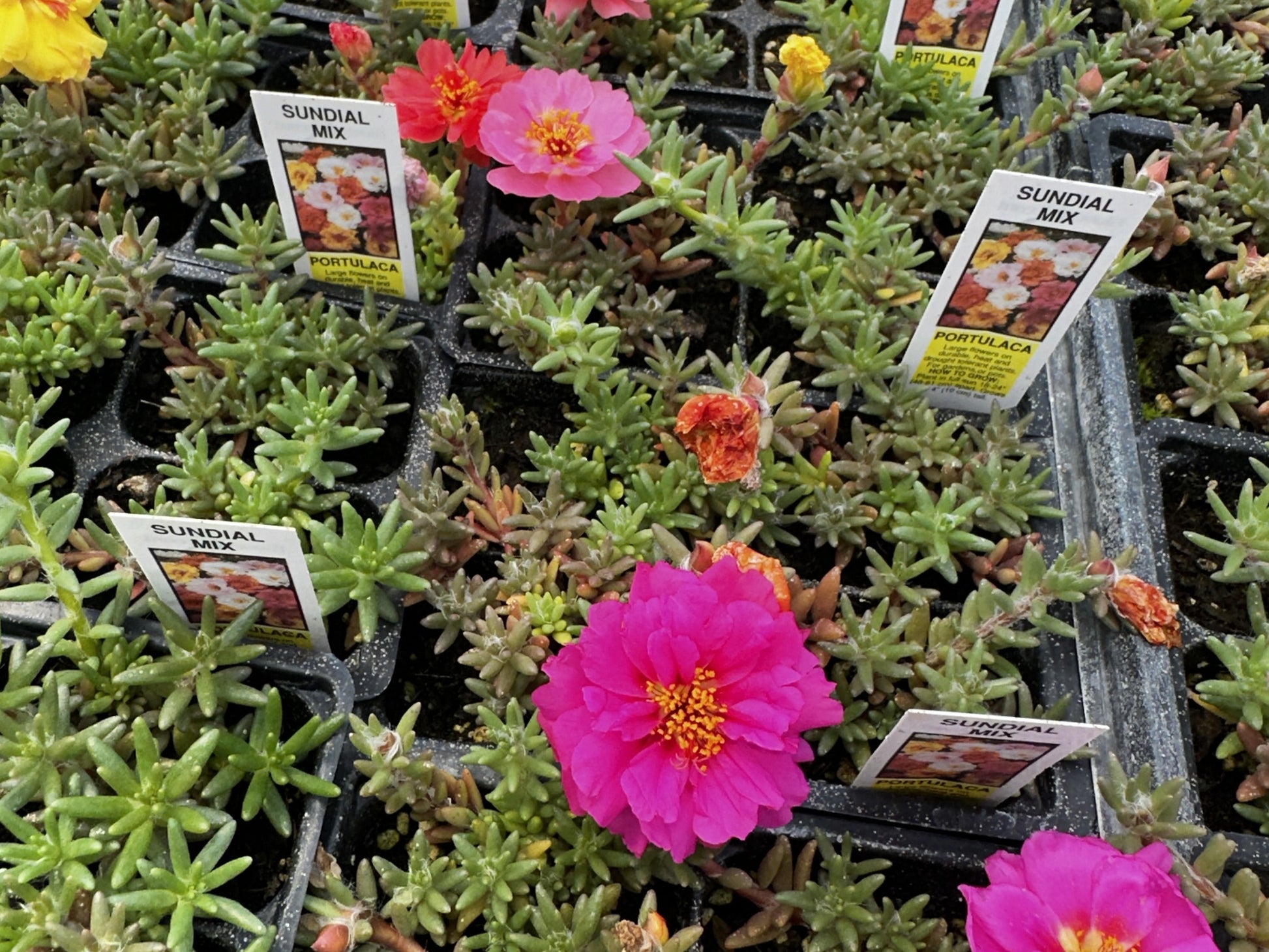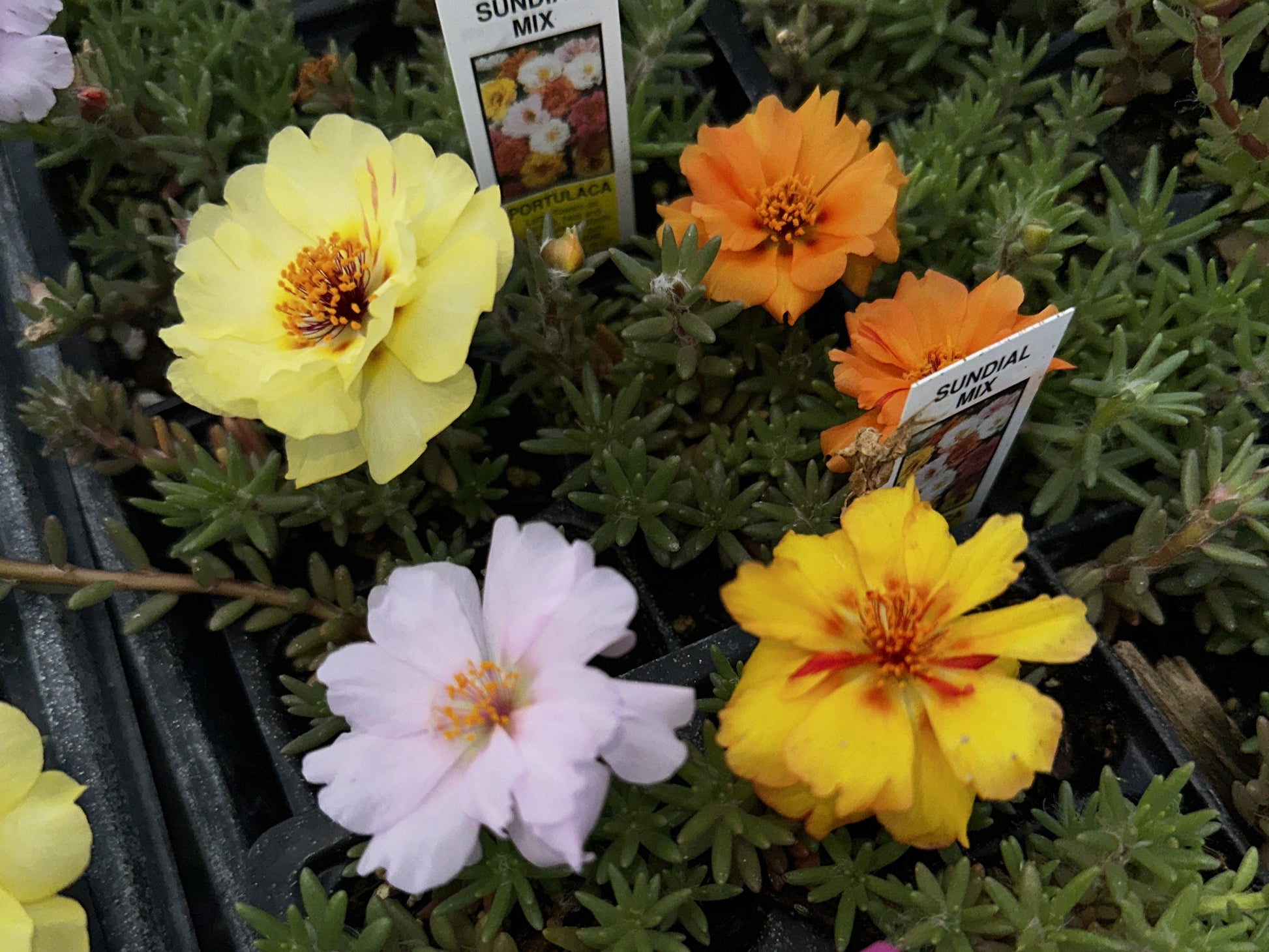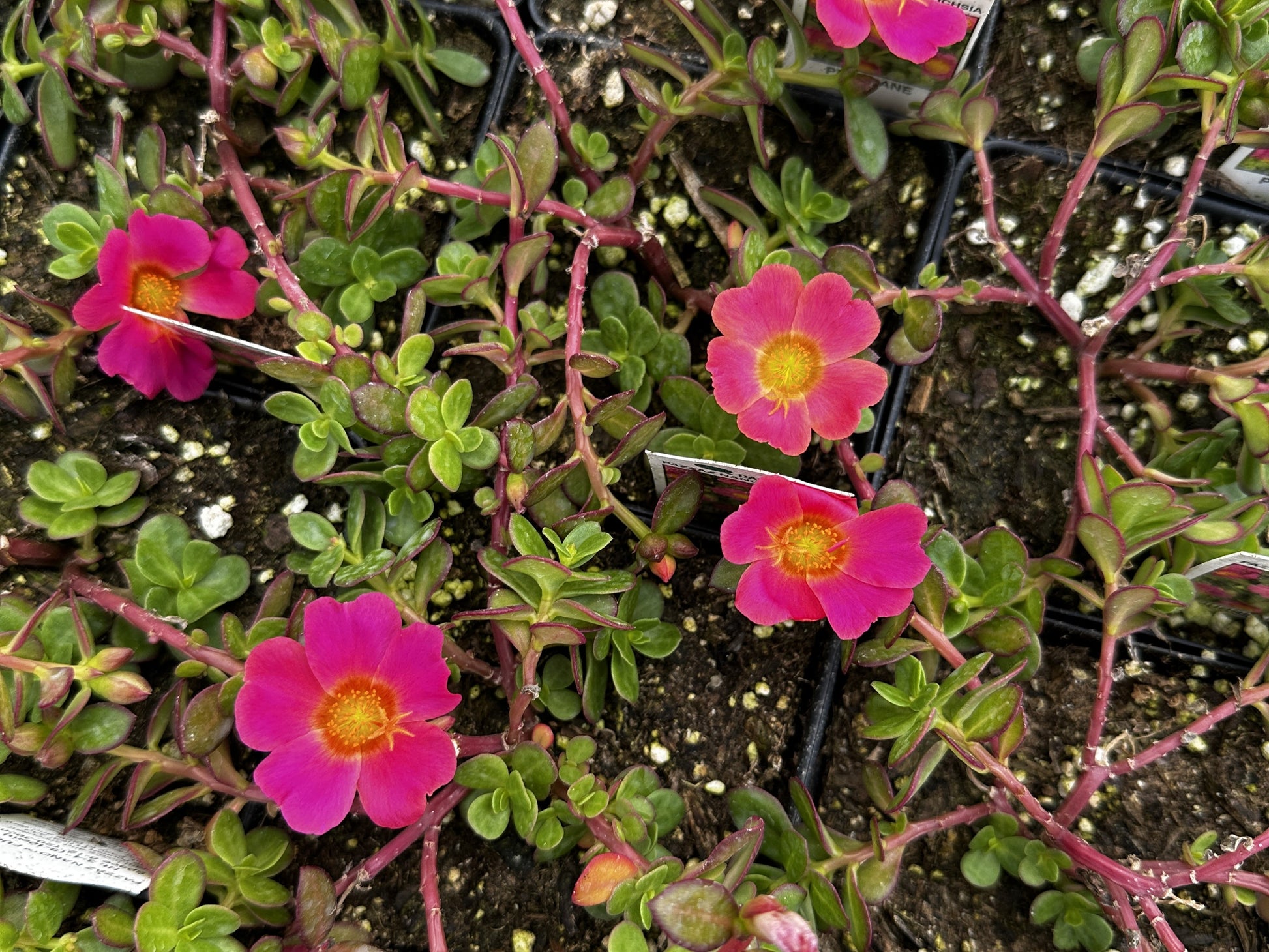Portulaca / Moss Roses
Common Name Moss rose, moss rose purslane, Mexican rose, sun rose, rock rose
Botanical Name Portulaca grandiflora
Family Portulacaceae
Plant Type Annual flowering succulent
Mature Size 3–9 in. tall, 6–12 in. wide
Sun Exposure Full
Soil Type Sandy, well-drained
Soil pH Neutral to Acidic
Bloom Time Early summer to frost
Flower Color White, orange, yellow, red, pink
Hardiness Zones 2–11, USA
Native Area South America
Toxicity Toxic to dogs, toxic to cats
Moss rose plants are a popular choice for growing in container gardens, along the front edge of garden bed borders, as edging along paved walkways, on top of stone walls, and in rock gardens. In addition, the trailing habit of moss rose works well in hanging baskets. Moreover, moss rose doesn't typically spread outside of its bounds as a ground cover, so it's ideal for small gardens.
These plants will flourish in poor, dry soils where many other plants might struggle—in fact, soil that's too wet can actually kill them. Moss roses typically bloom from summer to the first frost of the fall without any deadheading required. As annuals, the plants will die at the end of the growing season, but they do produce seeds that can potentially germinate and sprout the following year.
For more information visit: The Spruce
Botanical Name Portulaca grandiflora
Family Portulacaceae
Plant Type Annual flowering succulent
Mature Size 3–9 in. tall, 6–12 in. wide
Sun Exposure Full
Soil Type Sandy, well-drained
Soil pH Neutral to Acidic
Bloom Time Early summer to frost
Flower Color White, orange, yellow, red, pink
Hardiness Zones 2–11, USA
Native Area South America
Toxicity Toxic to dogs, toxic to cats
Moss rose plants are a popular choice for growing in container gardens, along the front edge of garden bed borders, as edging along paved walkways, on top of stone walls, and in rock gardens. In addition, the trailing habit of moss rose works well in hanging baskets. Moreover, moss rose doesn't typically spread outside of its bounds as a ground cover, so it's ideal for small gardens.
These plants will flourish in poor, dry soils where many other plants might struggle—in fact, soil that's too wet can actually kill them. Moss roses typically bloom from summer to the first frost of the fall without any deadheading required. As annuals, the plants will die at the end of the growing season, but they do produce seeds that can potentially germinate and sprout the following year.
For more information visit: The Spruce
